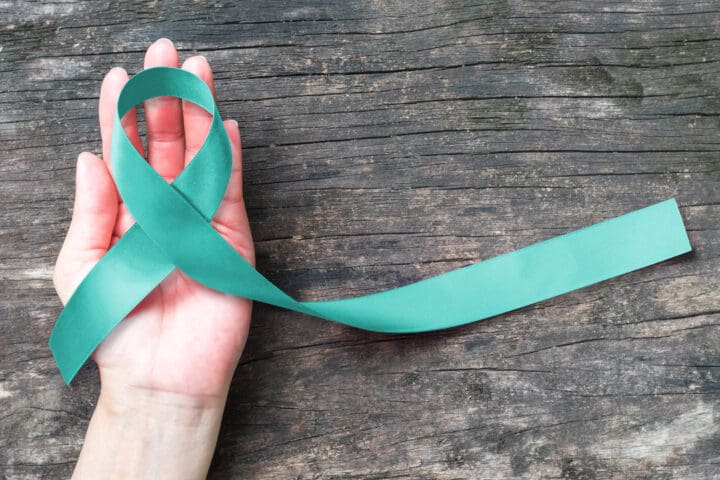Webinar Recording now Available: Advocating for Policy Change to Support Expansion of Broadband Access
Dr. Whitney Zahnd from the Advancing Cancer and Rural Equity (ACRE) Lab at the University of Iowa hosted part 2 of the “Upstream Approaches in Cancer Prevention” webinar series on March 21st. This webinar, titled “Advocating for Policy Change to Support Expansion of Broadband Access”, walked through steps to articulate the need for broadband access-related policies at various levels within states and the impact that broadband access has on cancer prevention and control. Additionally, it described data sources, policy levers, and partnerships necessary to advocate for meaningful change. The webinar recording and slides are now available.
Webinar Recording now Available: Advocating for Policy Change to Support HPV Vaccination
Dr. Whitney Zahnd from the Advancing Cancer and Rural Equity (ACRE) Lab at the University of Iowa hosted part 1 of the “Upstream Approaches in Cancer Prevention” webinar series on February 22nd. This webinar, titled “Advocating for Policy Change to Support HPV Vaccination”, walked through steps to articulate the need for HPV vaccination-related policies at various levels within states and described data sources, policy levers, and partnerships necessary to advocate for meaningful change. The webinar recording and slides are now available.
Telehealth across the Cancer Continuum
Rural residents face unique challenges when it comes to accessing quality, comprehensive cancer care which has greatly impacted their ability to lead a healthy life. Residents of rural areas typically have limited access to cancer care specialists, relying on primary care providers for their care. Despite having a lower incidence of cancer in these areas, this lack of access to specialized cancer care has caused a higher cancer mortality rate in rural America. However, telehealth can be an effective way to improve access to cancer-related care for rural patients, from prevention to survivorship.
Gynecologic Cancer Awareness Month
September marks Gynecologic Cancer Awareness Month, a month to bring awareness to gynecologic cancers which include cervical, ovarian, endometrial, and vaginal/vulvar cancers. Around 94,000 women are diagnosed with gynecologic cancers in the United States each year, 11,100 of which are cervical cancers caused by the human papillomavirus (HPV). HPV causes six different types of cancers, including vaginal, vulvar, and cervical cancers in women. Thankfully, the HPV vaccine can help prevent these cancers.
Supporting Rural Cancer Survivors and Caregivers
June marks National Cancer Survivors Month, a time to reaffirm our awareness of and commitment to meeting the needs of cancer survivors and their caregivers.
Setting Rural-Relevant Goals, Objectives and Strategies in Comprehensive Cancer Control Planning
Key elements of comprehensive cancer control plans include the development of goals, objectives and strategies to address the cancer burden within the state, tribal organization or territory. In developing rural-relevant goals, objectives and strategies there are a few important considerations.
Evidence-Based Strategies in Comprehensive Cancer Control Planning
Some key components of comprehensive cancer control plans include the development of goals, objectives and strategies to address the cancer burden within the state, tribal organization or territory. These goals, objectives and strategies can help spur collaboration between partners. During a webinar from the Geographic Health Equity Alliance in partnership with the Advancing Cancer and Rural Equity (ACRE) lab, three presenters discussed different ways in which evidence-based strategies have been implemented to improve cancer screening in rural areas.
Webinar Recording Available: Engaging Rural Partners in Comprehensive Cancer Control Planning
Collaboration is imperative for comprehensive cancer control programs and the development and update of state comprehensive cancer control plans. This webinar included a panel of cancer coalitions and comprehensive cancer control program evaluators who shared how they engaged rural partners throughout their respective states through coalition workgroups, surveys, focus groups, and other efforts.
Webinar Recording Available: Engaging Rural Partners in Comprehensive Cancer Control Planning
Collaboration is imperative for comprehensive cancer control programs and the development and update of state comprehensive cancer control plans. This webinar included a panel of cancer coalitions and comprehensive cancer control program evaluators who shared how they engaged rural partners throughout their respective states through coalition workgroups, surveys, focus groups, and other efforts.
National Rural Health Day: The Power of Collaboration to Advance Equity in Rural Cancer Control
It is a common trope in business, healthcare and many other sectors—to be effective in our work, we cannot be confined to silos. While it may be a cliché, it is also true! Collaboration is key to success in any endeavor. This is particularly true in reducing rural health inequities. As we recognize National Rural Health Day on Thursday, November 17, 2022, we know that collaboration—not working in silos—will advance cancer and rural equity.
Webinar: Defining and Describing Rural Communities in Comprehensive Cancer Control Planning
GHEA and the University of Iowa’s Advancing Cancer and Rural Equity Lab hosted "Defining and Describing Rural Communities in Comprehensive Cancer Control Planning" on June 7, 2022. This webinar focused on how rural is commonly defined, what data sources are available to describe the rural cancer burden and cancer risk factors to incorporate into comprehensive cancer control plans.
Strategies to Include Rural in Cancer Control Plans (An Upcoming Webinar Series)
April marks National Cancer Control Month, a time to re-affirm our awareness of and commitment to cancer control activities. The need for rural-specific cancer prevention and control activities have been increasingly emphasized in recent years, with national recommendations focusing on reducing rural cancer mortality disparities. Learn more about our upcoming webinar series on how comprehensive cancer control plans can meaningfully include rural health in their program planning processes among states, tribal organizations and territories.












